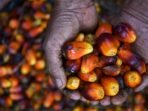JAKARTA – Covid-19 during 2020 has suppressed the economic growth of various countries, including the halal industry sector. This pandemic is estimated to cause a decrease in spending of global Muslim citizens by around 8 percent.
Even so, Indonesia is considered to have the potential for sustainable sharia economic growth with a strong exostem, which will have a big role in the growth of the world’s Islamic economy. “My report presents Indonesia’s continued rise to a strong ecosystem to enable greater participation in this multi-trillion global market opportunity. This is also one of the most attractive markets for international investors today,”said CEO and Managing Director Dinar Standard Rafi-Uddin Shikoh, Tuesday (17/11/2020).
The report of The State of The Global Islamic Economy Report 2020/2021, the decline in spending of Muslims occurred in all sectors of the halal industry due to the impact of the Covid-19 pandemic. However, all these industrial sectors will bounce back to pre-prandemic spending levels, by the end of 2021. Muslim spending is expected to reach US$ 2.3 trillion in 2024 at an annual Cumulative Growth Rate (CAGR) of 3.1 percent.
Every year Dinar Standard issues The State of Global Islamic Economy Report (SGIER) which is a report on the development of the global Islamic economy. This year’s SGIER launch was held in several cities in various countries, including in Indonesia, which was organized by the Indonesia Halal Lifestyle Center (IHLC) in Jakarta by hybrid, online and limited meetings by following the covid-19 health protocol, Tuesday, November 17, 2020.
Besides Indonesia, SGIER was launched in its hub city Dinar Standard, Dubai (November 16, 2020), Kuala Lumpur (November 18, 2020), Marocco (November 19, 2020), London (November 20, 2020), and Madrid (November 23, 2020). “IHLC is a partner in launching and translating the executive summary into Indonesian,” said the Chairman of IHLC, Dr. Sapta Nirwandar.
In the development of the halal industry, Indonesia has experienced a significant increase compared to other countries. Even the Covid-19 pandemic has become a momentum for the revival of the halal economy. Vice President of the Republic of Indonesia, Prof. Dr (HC). KH. Ma’ruf Amin stated “Indonesia will become the largest halal producer in the world by 2024”.
“Indonesia has rapid progress in the global Islamic economic cycle in various sectors, such as finance, food and beverage, pharmaceuticals, cosmetics, fashion, tourism, and recreational media,” explained Rafi-uddin Shikoh.
Sapta Nirwandar explained, in the midst of pandemic, of course there are sectors that face more severe challenges, such as the tourism sector. But there are also relatively lightly affected, such as the food and beverage sector, which is even more likely to be stable. Meanwhile, the technology and pharmaceutical sectors are experiencing rapid growth.
“Indonesia has a great opportunity to accelerate halal products and services. Not only for domestic needs, but also for the opportunity to go-export,” said Sapta Niwarndar, who is also a former Deputy Minister of Tourism of the Republic of Indonesia.
SGIER 2020/2021 explained that in 2019 the growth rate of Muslim spending reached 3.2 percent (year on year) with a value of around 2.02 billion US dollars. While the world’s Islamic financial assets also experienced high growth, their assets have now reached 2.88 trillion US dollars. In the midst of the Covid-19 pandemic, global Muslim spending will experience a decline of 8 percent. However, halal economic expenditure will again grow by the end of 2021, except for the tourism sector.
The Covid-19 pandemic has recorded many important developments in the Islamic economy, including the acceleration of digital transformation, disruption of global supply chains, and the increasing focus of the government on investments related to food safety. “The global Islamic economy continues to rely on eight key drivers, including a large and growing Muslim population, increasing adherence to Islamic ethical values that affect consumption, and a number of national strategies aimed at developing halal products and services.”
Some of Indonesia’s most prominent national Islamic economic strategies are the Halal Product Guarantee Law (UU JPH). In addition, the halal industry continues to develop itself through the development of a comprehensive ecosystem towards Indonesia to become the world’s producer of halal products. “This is in line with the determination and policy of the Indonesian government to stipulate that in 2024 it will become the center of the world’s halal product producers,” said Sapta Nirwandar.
Anang Fadhilah











